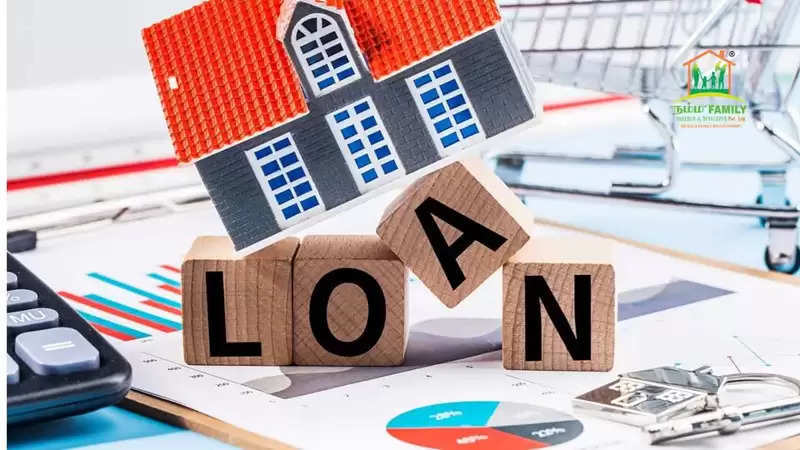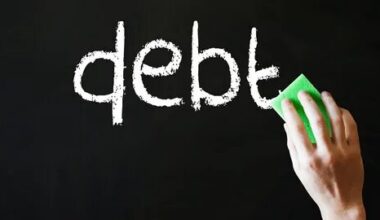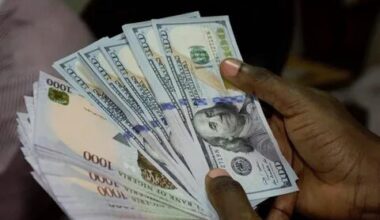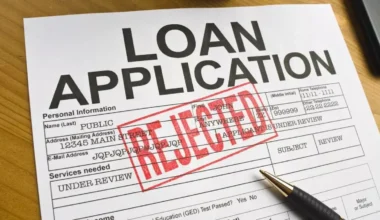Introduction: The Silent Power of Your BVN
In Nigeria, your Bank Verification Number (BVN) is more than just an 11-digit code. It’s your financial fingerprint, connecting all your bank accounts under one identity. Every loan application, savings account, or digital wallet transaction has your BVN stamped on it.
But here’s the big question: what really happens to your BVN when you default on a loan? Does it get blocklisted? Can it block you from accessing future loans in Canada or the USA? Or is it just a scare tactic lenders use to keep borrowers in check?
This blog post dives deep into the truth, exploring the real implications of loan defaults on your BVN, the ripple effects on your financial life, and how it ties into global credit systems.
What Exactly is a BVN and Why Is It So Powerful?
The BVN system was introduced by the Central Bank of Nigeria (CBN) in 2014 to curb identity theft and improve financial transparency.
- BVN = One Identity Across All Banks
Unlike account numbers, which vary, your BVN is linked to every account you own across Nigerian banks. - Security Tool
It helps curb fraud by ensuring one person cannot open multiple fraudulent accounts. - Loan Monitoring
With BVN, banks and lenders can easily track your loan behavior across different institutions.
Think of it as your financial passport, much like a Social Security Number (SSN) in the USA or a Social Insurance Number (SIN) in Canada.
Loan Default: What Does It Mean for Your BVN?
When you default on a loan, the first assumption is that your BVN gets blocklisted. But that’s only part of the story.
Here’s what really happens:
- Your Debt is Reported to Credit Bureaus
Nigerian banks and digital lenders report defaults to licensed credit bureaus like CRC Credit Bureau and CreditRegistry. - Credit Report Updates
Your BVN is tagged with the default record. While it isn’t “blocked,” it’s flagged with your bad loan history. - Future Loan Applications
Any bank, microfinance lender, or fintech checking your BVN-linked credit profile will see your negative record.
In simple terms, your BVN becomes a red flag for future borrowing.
BVN Default vs. Account Restrictions
People often confuse “BVN blocklisting” with “account freezing.”
| Scenario | What Happens | Impact on You |
|---|---|---|
| Default on Loan | BVN flagged in credit bureau | Harder to get loans in future |
| Fraud or Crime | BVN may be restricted by CBN | Accounts frozen across all banks |
| Identity Theft | BVN temporarily flagged | Investigations until resolved |
👉 Default doesn’t mean your BVN is permanently useless—it just makes borrowing extremely difficult.
How Defaulting Affects You Beyond Nigeria
You may wonder: “If my BVN is Nigerian, why should it matter in Canada or the USA?”
Here’s the link:
- Global Credit Integration – Some Nigerian banks and credit bureaus collaborate with international financial systems. This means your borrowing history may come up if you apply for loans while abroad.
- Diaspora Banking – If you maintain Nigerian accounts while living in the USA or Canada, your BVN still plays a role in loan applications.
- Reputation Risk – Employers, embassies, and even visa processing centers sometimes review financial credibility for sensitive opportunities.
World Bank data confirms that BVN is part of Nigeria’s global push for financial transparency.

The Chain Reaction of a Loan Default
Defaulting on a loan doesn’t just affect one bank. Here’s how the domino effect works:
- Your BVN is flagged at the credit bureau.
- All other banks and fintech lenders get alerts when they check your credit score.
- Loan sharks and payday lenders may still offer loans—but at cutthroat interest rates.
- You risk being labeled “high-risk” for life, unless you take steps to repair your profile.
BVN Default vs. Credit Score in Canada and the USA
To better understand the similarities, let’s compare:
| Nigeria (BVN System) | Canada/USA (Credit Score System) |
|---|---|
| BVN links all accounts | SSN/SIN links all accounts |
| Defaults reported to bureaus | Defaults reported to Equifax, TransUnion, Experian |
| Poor BVN record = loan rejections | Low credit score = loan/credit card denial |
| No numeric score, just record history | Score ranges (300–850 in USA) |
| Limited international reach | Global influence (e.g., visa, employment, rentals) |
The systems differ in form, but the outcome is the same: loan defaults haunt your financial future.
Can Your BVN Be Cleared After Default?
Yes—but it takes deliberate effort:
- Repay the Loan: Full repayment (or negotiated settlement) is the fastest way.
- Request Clearance: After repayment, ask your lender to update your credit report.
- Wait Out the Record: Negative BVN-linked records typically last for years (5–7 years in some cases).
This process is similar to credit repair in the USA or Canada, where you can dispute or pay off bad debt to rebuild your score.
Common Myths About BVN and Loan Defaults
- Myth 1: Your BVN gets “deleted.”
→ BVNs cannot be deleted—they’re permanent. - Myth 2: Defaulting blocks all your accounts.
→ No, unless it involves fraud or legal issues. - Myth 3: Paying small amounts resets the record.
→ Wrong. Only full repayment (or an official restructure) clears your record.
What Lenders Don’t Want You to Know
Here’s the hidden truth: defaulting doesn’t always mean the end. Some lenders exploit fear, exaggerating BVN restrictions to pressure borrowers.
In reality, your BVN stays active. What changes is your financial credibility. You might still get access to banking services—but at a higher cost.
The Central Bank of Nigeria also emphasizes that BVN is a security tool, not a punishment mechanism.
How to Protect Your BVN from Loan Default Damage
Here are practical steps:
- Borrow Within Your Limit – Never take loans you can’t repay.
- Emergency Fund – Keep at least 3 months of expenses aside.
- Negotiate Early – If repayment becomes difficult, approach your lender for restructuring.
- Check Your Credit Report – Regularly request your BVN-linked credit history.
- Avoid Loan Apps with Predatory Rates – Many target desperate borrowers.
The Harsh Truth: BVN Default Follows You
Loan default doesn’t end with one bank. Your BVN ensures the information follows you wherever you go in Nigeria’s financial system. And if you later seek opportunities abroad, unresolved debts could raise red flags during due diligence checks.
In Canada and the USA, financial responsibility is a trust factor. Employers, landlords, and even universities sometimes check creditworthiness. Your Nigerian BVN record may not appear directly, but it shapes how you build trust in global systems.
Conclusion: Your BVN Is Your Financial Identity—Guard It
Defaulting on a loan may not destroy your BVN, but it scars your financial reputation. The truth is clear: your BVN won’t be “blocked,” but your credibility will.
Just as Americans guard their credit scores and Canadians protect their SIN-linked financial history, Nigerians must treat their BVN with the same seriousness. Borrow wisely, repay diligently, and remember—your BVN is your lifelong financial fingerprint.
FAQs
1. Can my BVN be permanently blocklisted?
No. Your BVN itself cannot be blocklisted. Only your credit history tied to it can reflect defaults.
2. Will unpaid loans affect me if I travel abroad?
Yes, indirectly. While BVN data is Nigerian, global financial institutions may notice unpaid debts in cross-border checks.
3. How long does a loan default remain on my BVN record?
Typically 5–7 years, depending on the credit bureau’s policies and repayment status.
4. Can I still open new accounts if I default?
Yes. Your BVN remains valid, but banks will see your debt history when reviewing you for loans or overdrafts.
5. How can I repair my BVN reputation?
Repay debts, request clearance from lenders, and avoid future defaults. Over time, your record improves.





